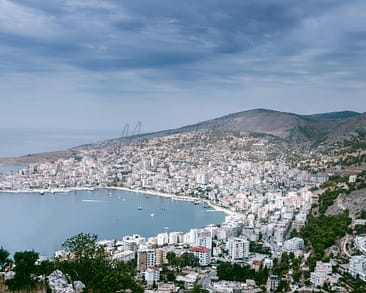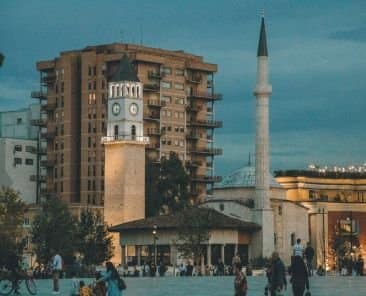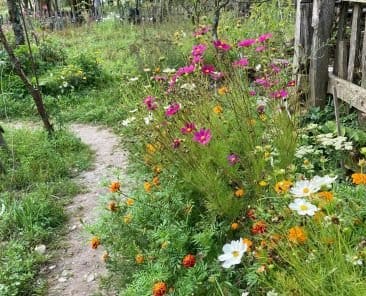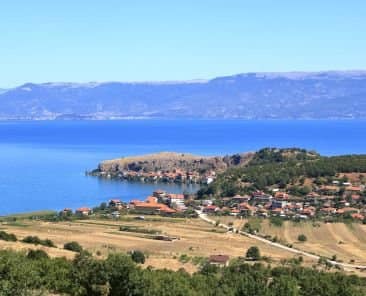L'Albania sta gradualmente scalando la classifica del turismo, diventando sempre più popolare tra gli stranieri con il passare dei giorni. Il Paese è oggi riconosciuto per la sua natura accogliente e amichevole, ma quando si impara a conoscere il suo passato, ci si rende subito conto che le cose non sono sempre state così semplici per gli albanesi.
Tra il periodo di 1946 e 1991La nazione viveva sotto il rigido dominio di Enver Hoxha e la vita nell'Albania comunista era a dir poco difficile.
Punti di forza
- L'Albania è stata sotto il rigido governo comunista di Enver Hoxha tra il 1946 e il 1991.
- Gli albanesi, sotto il comunismo, hanno dovuto affrontare diversi problemi, tra cui la povertà e l'oppressione.
- Da allora, l'Albania è sfuggita al comunismo e oggi è una repubblica democratica.
Come l'Albania è stata gettata sotto il dominio comunista
La spinta dell'Albania verso il regno comunista è iniziata durante la Seconda Guerra Mondiale. Questo fu anche il periodo in cui gli italiani invasero l'Albania, precisamente intorno al 1939, e presero il controllo del Paese. Due anni dopo quel periodo, Enver Hoxha, l'ex leader comunista in Albania, fondò il CPA, acronimo di Partito Comunista d'Albania, che in seguito formò un gruppo di resistenza per cacciare gli italiani dal Paese.
Nel 1944, Hoxha aveva stabilito il suo dominio in gran parte dell'Albania, ma non era ancora al sicuro. Solo nel 1946 vennero anche completate le elezioni del Paese e Enver Hoxha fu considerato il primo a vincere. il leader della Repubblica Popolare d'Albania.
Sono molti i fattori che hanno portato l'Albania a diventare uno Stato comunista, tra cui la vulnerabile situazione economica e militare del Paese all'epoca, l'intervento della Jugoslavia e altro ancora.
Se volete approfondire i dettagli della storia comunista dell'Albania, ecco alcune fonti preziose su cui fare affidamento:
- Fango più dolce del miele, libro di Małgorzata Rejmer
- Robert Elsie, scrittore decorato e specializzato in studi sull'albanese
- Storia concisa dell'Albania, un altro libro di Oliver Schmitt
Com'era la vita nell'Albania comunista?
Sebbene ci fossero anche alcuni aspetti positivi, la vita quotidiana nell'Albania comunista era generalmente considerata terribile, e c'erano ragioni plausibili per questo. Operare secondo i principi del comunismo significava che gli albanesi erano innanzitutto isolatoe tagliato fuori dal resto del mondo. Questo ha portato alla frustrazione della popolazione all'inizio, a causa della mancata disponibilità sul mercato di beni di prima necessità.
Perché? Perché Enver Hoxha decise di vietare ogni forma di commercio estero, promuovendo al contempo il motto di "autosufficienza", quando in realtà si trattava semplicemente di estremismo che si ripercuoteva sugli albanesi. A ciò si aggiungono l'oppressione, un costante stato di paranoia in cui gli albanesi erano sommersi e un'economia in declino, che ha portato a problemi ancora maggiori.
Al contrario, il governo di Hoxha ha avuto alcuni risultati utili, come testimoniato da questa fonte:
“Ogni persona aveva un lavoro e un tetto sopra la testa. L'istruzione era migliore e tutti si sentivano relativamente al sicuro. Dico relativamente perché, anche se non c'era molta criminalità, la gente aveva paura di pestare i piedi e di rovinare la propria vita e quella di tutti i membri della propria famiglia. I primi anni del comunismo erano migliori dei successivi. È qui che si ferma il bello.”
L'Albania comunista ha favorito la popolazione nei seguenti modi, anche se devo ammettere che i pro del comunismo in Albania non superano i contro nel grande schema delle cose.
- L'assistenza sanitaria fu resa gratuita, anche se la sua qualità lasciava molto a desiderare.
- Il livello di istruzione è migliorato.
- Il tasso di occupazione è aumentato.
- Il regime di Hoxha ha anche evidenziato i diritti delle donne e ha dato priorità all'uguaglianza di genere.
- La corruzione è stata ridotta al minimo.
[su_service title=”My Recommendation” size=”20″ icon=”icon: thumbs-o-up” class=”recommendBox”]Tirana - visita guidata del comunismo[/su_service]
Il comunismo in Albania ha avuto un costo elevato
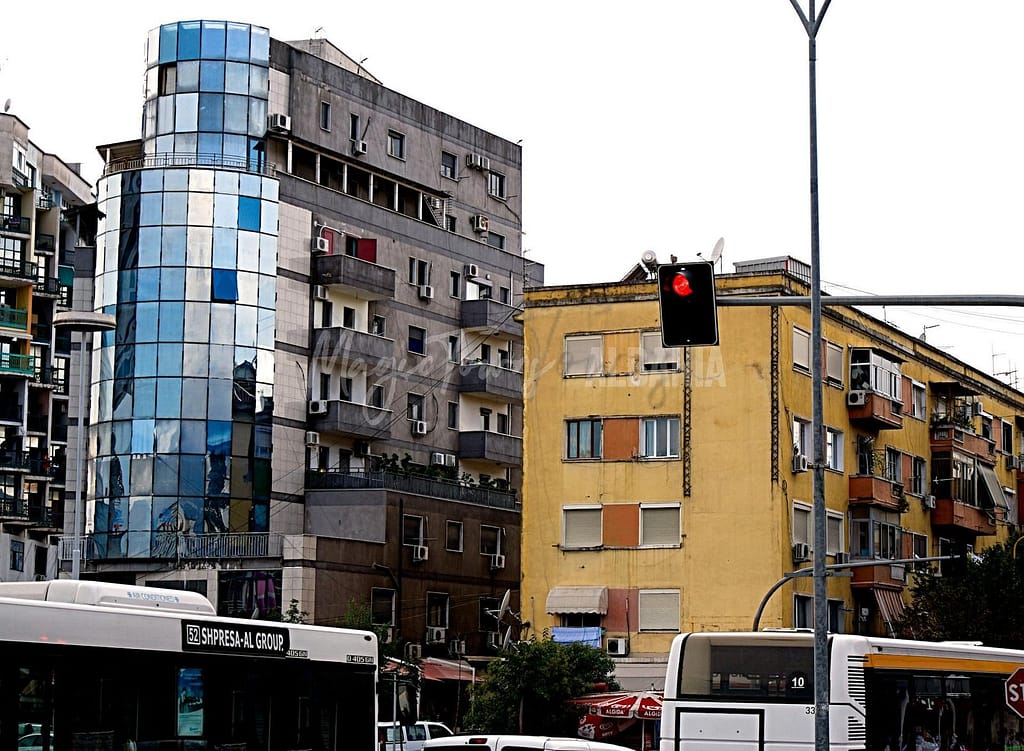
Le radici del comunismo sono in buona fede, ma è l'interpretazione di questo sistema senza classi che spesso può portare più danni che benefici. Ecco una panoramica dell'Albania comunista di Enver Hoxha e di alcune delle principali sfide che i cittadini della nazione dovettero affrontare all'epoca.
Repressione ingiusta
Mentre le cose non andavano bene per l'Albania, il governo si concentrava sul perseguimento di una propaganda "tutto va bene". Questa era falsa fino all'osso, e il governo Hoxha si è dato alla censura di qualsiasi cosa e di chiunque osasse opporsi.
Crisi economica
Ho imparato che le famiglie di 5 persone a volte dovevano condividere una pagnotta di pane da 500 grammi per una settimana per sopravvivere nell'Albania comunista. Gli alimenti, come il latte, la carne, le uova e il formaggio, erano razionati e si potevano ottenere solo in quantità limitate. La carenza di cibo aumentava con il tempo e l'economia dell'Albania continuava a peggiorare.
Isolamento e mancanza di libertà
Secondo fontivivere in campagna all'epoca era come "animali che vivono in uno zoo." Se aveste pensieri diversi dagli interessi dello Stato, voi e la vostra famiglia ne paghereste il prezzo.
Aggiungete l'impossibilità di viaggiare al di fuori del paese o di qualsiasi altro luogo liberamente, e si tratta di un periodo davvero impegnativo. Le persone diventavano sempre più inaffidabili. La paranoia persisteva ovunque, e il governo lanciò persino "Sigurimi", un'organizzazione segreta di polizia che ha il compito di tenere un occhio di riguardo per gli abitanti del luogo.
[su_service title=”My Recommendation” size=”20″ icon=”icon: thumbs-o-up” class=”Visit Bunk’Art for a powerful glimpse into Albania’s communist past![/su_service]
L'Albania è uno Stato comunista?
No, l'Albania non è più uno Stato comunista. Il Paese è passato dal comunismo alla democrazia nel 1992, con la nascita del Partito Democratico d'Albania. Oggi la nazione gode di un sistema di libero mercato senza interferenze governative e di molteplici partiti politici che costituiscono il sistema democratico del Paese.
Se non altro, l'Albania è oggi un luogo emergente nel settore del turismo grazie alle sue politiche amichevoli, all'ottima gente del posto e luoghi incantevoli da visitare.
Conclusione
Per molti la vita nell'Albania comunista è stata un incubo, come dimostrano le diverse testimonianze storiche che gli albanesi hanno dovuto sopportare. molto ai tempi. Il effetti dannosi di Enver Hoxha e il suo governo hanno lasciato un segno indelebile sul Paese anche a distanza di decenni. Il governo è ancora in difficoltà con l'economia, anche se continua a migliorare di anno in anno.
La buona notizia è che i giorni in cui l'Albania era uno Stato oppresso e comunista sono finiti da un pezzo. Oggi la nazione balcanica prospera nel settore del turismo e anche il futuro sembra luminoso.
Se avete domande rimaste senza risposta, non esitate a contattarci a Magic Towns Albania.








